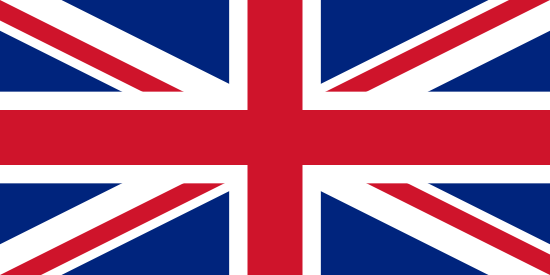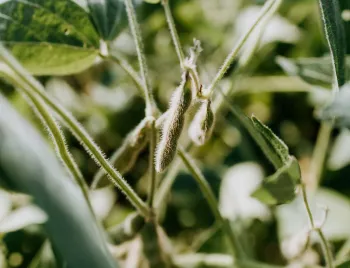A common and harmonized solution for the entire supply chain
The industry's goal was and is to establish more sustainable supply chains for protein animal feed. This means promoting the proportion of soy from more sustainable production. The aim is also to establish the procurement of sustainably produced soy in the QS scheme according to a uniform principle, regardless of its origin - and to avoid a patchwork of confusing individual solutions. As a cross-industry standard setter, QS has developed the QS-Sojaplus standard together with representatives along the entire meat production chain and anchored it in the supply chains within a very short space of time. A solution that has been mandatory in the QS scheme for all feed manufacturers and traders who process or trade soy products since January 1, 2024.
QS-Soyplus - A big plus in sustainability for the entire branch
The entire branch has become more sustainable
Since 1 January 2024, all soy used in feed in the QS scheme has complied with the QS-Soyplus standard. This standard explicitly promotes sustainably certified soybean cultivation. In figures, this means that since the beginning of the year, pigs in 38,000 companies, cattle in almost 68,000 companies and poultry in over 5,000 companies have only been fed this soybean – if their feed contains soybean. This also means that 95 per cent of pork and poultry and 85 per cent of beef in German food retail stores comes from livestock farming that has demonstrably been promoted with more sustainable soy. This is a real breakthrough in animal feeding.
The requirements of QS-Soyplus go well beyond the EU requirements for deforestation-free status
QS-Soyplus requires compliance with certain producer standards for the cultivation of soy, which, among other things, also contain 73 sustainability criteria that take into account social, economic and ecological aspects of soy cultivation locally. These sustainability criteria are based on the established FEFAC-Soy Sourcing Guideline and also exclude the conversion of areas worthy of protection. This is where the QS-Soyplus feed standard differs significantly from the requirements of the EU regulation, which only fo-cuses on the partial aspect of freedom from deforestation. The requirements of QS-Soyplus go well beyond the EU requirements for deforestation-free status.
QS-Soyplus is a pragmatic solution
More sustainable soy in the QS scheme is a practical solution developed by the industry for the industry, which applies to the entire chain and is supported by all. Because the feasibility for the industry plays a decisive role in spreading sustainability across the board. With the uniform industry solution, which is being pushed by all economic operators, the meat industry does not have to go to great lengths to separate the flow of goods between animals that have been fed differently. This is an important aspect for the acceptance of the new standard in practice.
QS-Soyplus is not a German island solution
The comprehensive industry solution via the QS scheme applies to all animals and feed – even if they come from abroad and are marketed in the QS scheme. There is no distortion of competition. QS also works with recognised international standard owners: if their requirements are comparable and thus compliant with QS-Soyplus, the trade and production of feed with soy can also be certified according to their standards.
Clarity for food retail and consumers
Food retailers and consumers buying QS products can be sure that they only receive meat from animals that – if soy is used – are fed with more sustainable soy. Via the traceability anchored in QS and the cross-stage approach in the QS scheme, certifications according to internationally recognised sustainability standards as well as further requirements can be validly verified at all stages.
Safeguarding the availability of goods and promoting sustainable development
Currently, the required quantities of sustainably grown soybeans that meet the QS-Soyplus requirements are not always physically available worldwide for use in feed. For this reason, feed companies in the QS scheme can currently also source and process soybeans from crops that have not yet been certified as sustainable, but then have to offset these goods by purchasing sustainability credits (book & claim). This volume compensation via credits then also promotes more sustainable soybean cultivation: the money benefits farmers who work more sustainably and other social projects. This means that with this current solution, the QS scheme ensures the necessary availability of goods while at the same time strengthening the goal of further financially promoting more sustainable cultivation.
SHORT & COMPACT - QS-Soyplus
A big plus in sustainability for the entire branch

Certification of soybean cultivation

As the cultivation of soy in the countries of origin is not certified by QS, sustainability standards for primary production are provided by QS for recognition. The criteria are based on the FEFAC Soy Sourcing Guideline and QS-specific requirements for certification. Under the first of the two links below you will find an overview of all the criteria that QS sets for the sustainable cultivation of soybeans and which must be fulfilled by standard setters who have themselves benchmarked via QS. Under the second link you will find an overview of the QS recognized standards for soybean cultivation.
Documents Module QS Soyplus
Guideline QS-Soyplus (valid as of 01.01.2026)
Annex 4.1 Soybeans products scope QS-Soyplus (valid as of 01.01.2026)
Annex 4.3 Recognized systems for QS-SoyPlus for feed trade and production (valid as of 02.01.2026)
Annex 4.2 Recognized standards for the soybean production (valid as of 02.01.2026)
FAQ
Contact
Claudia Brill
Team Leader Feed Sector- Tel: +49 (0) 228 35068-211
- Fax: +49 (0) 228 35068-16211
Pia Gielen
Junior Manager Feed Sector- Tel: +49 (0) 228 35068-213
- Fax: +49 (0) 228 35068-16213



